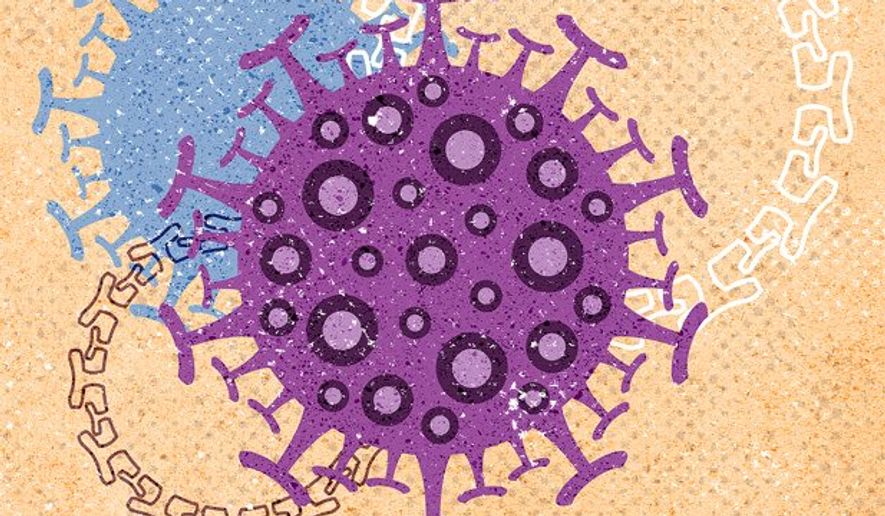OPINION:
It is very unlikely that you will die from the coronavirus.
About 175,000 Americans who died in the last six months have had their deaths identified as “related to” the coronavirus. Is that a lot? Well, there are more than 325 million of us, so, even if every death “related to” the virus was actually caused by the virus, that’s about one death per 1,800 people. For purposes of perspective, about 175,000 Americans — in a population of about 200 million — died during the Hong Kong flu epidemic in the late 1960s.
Even among the elderly, about 90% of those who contract the coronavirus survive.
It is also unlikely that you will contract the coronavirus.
About 80 million tests have been conducted in the United States. Less than 10% — about 6 million — have been positive. A positive test does not mean that you will get ill. To date, only about 360,000 people have been hospitalized in the U.S. as a result of the virus.
Unfortunately, more people are going to die from the coronavirus. That said, the chances of you dying from the coronavirus are very remote, especially if you are under the age of 75.
Think about it for a second. If this were really that lethal a disease, the media would not be hounding us relentlessly to take it seriously. No one had to convince anyone in Florence in 1348 that the Black Death was lethal.
Regrettably, if you are waiting for a vaccine, you might be in for a long wait. We have never successfully developed a vaccine for any coronavirus. That uncomfortable fact rarely gets mentioned. Even if we did develop a vaccine, almost half the country has told us in surveys that they would not take it. That roughly tracks with the percentage of folks who do not take the annual flu shot.
With respect to masks, there is quite a bit of biology that suggests that appropriate, consistent mask wearing will reduce the transmission of disease. Unfortunately, there doesn’t seem to be much of any statistical evidence that wearing the types of masks we wear in the way and the times that we do achieves much. There is no study or data that I can find that suggests that there is a relationship between those areas with greater degrees of mask wearing and areas that have lower hospitalizations or death rates in the United States.
I do not dispute or contest the idea that masks should help minimize the spread. But in the real world, people are not required to and do not wear masks in ways that provide any material benefit. When was the last time you washed/changed your mask? Tucked it into a purse or pocket? Hung it from a rearview mirror?
Finally, and most importantly, no one is going to blow a whistle and say it’s OK to get back to work or school or whatever. Each and every person is ultimately going to have to make their own decision about what level of risk they are prepared to tolerate and act accordingly. Some of your fellow citizens are very afraid, some are not. Be patient with everyone.
They asked us to flatten the curve. No one said a word about the area under the curve — which describes hospitalizations and deaths — and whether anything we did would ultimately shrink that area. Similarly, talk about winning a war against the invisible enemy and all that is ridiculous.
This virus, like all viruses, is going to work its way through the population until we get a vaccine, it mutates or we get something approximating widespread immunity. In the meantime, the right answer is to improve our therapeutic capabilities and do what we can to reduce the exposure of those most at risk.
It is also essential that our leaders be honest and accurate about the likelihood of contracting it, being hospitalized, and dying from it, as well as what can be done to minimize the chances of those who might face greater risks from contracting it.
The rest is persiflage and propaganda.
• Michael McKenna, a columnist for The Washington Times, is the president of MWR Strategies. He was most recently a deputy assistant to the president and deputy director of the Office of Legislative Affairs at the White House.




Please read our comment policy before commenting.